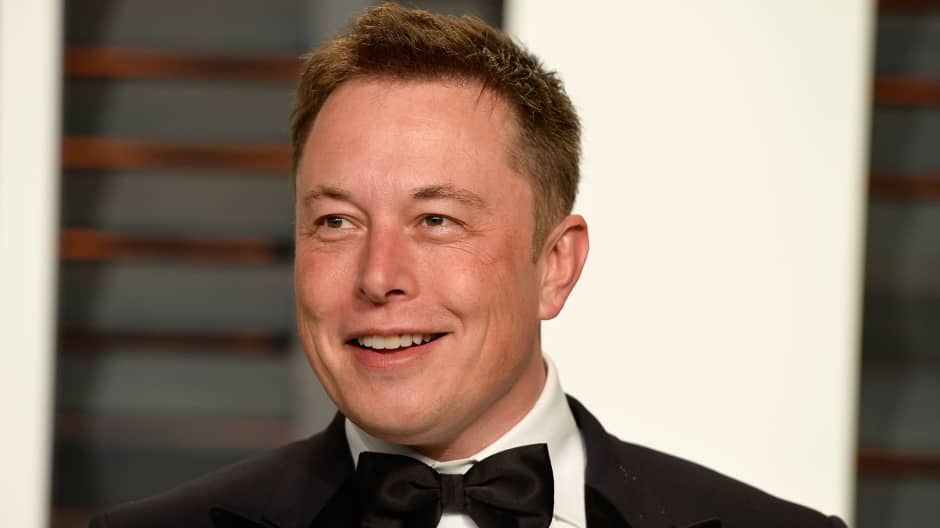- Luật
- Hỏi đáp
- Văn bản pháp luật
- Luật Giao Thông Đường Bộ
- Luật Hôn Nhân gia đình
- Luật Hành Chính,khiếu nại tố cáo
- Luật xây dựng
- Luật đất đai,bất động sản
- Luật lao động
- Luật kinh doanh đầu tư
- Luật thương mại
- Luật thuế
- Luật thi hành án
- Luật tố tụng dân sự
- Luật dân sự
- Luật thừa kế
- Luật hình sự
- Văn bản toà án Nghị quyết,án lệ
- Luật chứng khoán
- Video
- NGHIÊN CỨU PHÁP LUẬT
- ĐẦU TƯ CHỨNG KHOÁN
- BIẾN ĐỔI KHÍ HẬU
- Bình luận khoa học hình sự
- Dịch vụ pháp lý
- Tin tức và sự kiện
- Thư giãn

TIN TỨC
fanpage
Thống kê truy cập
- Online: 223
- Hôm nay: 198
- Tháng: 1621
- Tổng truy cập: 5245625
Neil deGrasse Tyson: Why Elon Musk is more important than Jeff Bezos, Steve Jobs and Mark Zuckerberg
Which of this generations biggest tech luminaries and innovators will ultimately be remembered for having the greatest lasting effect on the world?

Its a tough question, especially when you consider the role that people like Steve Jobs, Jeff Bezos and Mark Zuckerberg play in our everyday lives. But, if you ask renowned astrophysicist Neil deGrasse Tyson, the answer is simple: Elon Musk.
"As important as Steve Jobs was, no doubt about it — [and] you have to add him to Bill Gates, because they birthed the personal computing revolution kind of together — heres the difference: Elon Musk is trying to invent a future, not by providing the next app," deGrasse Tyson tells CNBC Make It about the Tesla and SpaceX CEO.
Between Musks work at Tesla developing electric cars and his plans to put humans on Mars by 2024 (and, eventually, to colonize the planet), the billionaire tech executive is attempting to revolutionize both human transportation and space exploration, deGrasse Tyson says.
"Because theres unlimited resources in space; resources that, on Earth, we fight wars over," deGrasse Tyson tells CNBC Make It. "In space, you dont need to fight a war, just go to another asteroid and get your resources. A whole category of war has the potential of evaporating entirely with the exploitation of space resources, which includes the unlimited access to energy as well."
Thats the sort of universal issue that Musk is trying to tackle, deGrasse Tyson argues, which gives him the potential to have the greatest long-term effect on our civilization. "[H]e will transform civilization as we know it," deGrasse Tyson says.
Granted, Musk has had his share of detractors over the past year. Musk was forced to step down from his role as Teslas chairman as part of a settlement with the SEC over a series of tweets in August in which he discussed taking Tesla private (the SEC alleged the tweets constituted fraud on Musks part). The billionaire CEO has also received quite a bit of criticism for, among other things: seemingly smoking marijuana on video, calling a British cave diver a "pedo" on Twitter, and clashing with journalists during an earnings call.
However, deGrasse Tyson feels that Musk is somewhat underappreciated, though he argues that Musk is beloved by many people, including Tesla owners and anyone interested in space exploration. ("Go, Elon Musk! And, I dont care if he gets high," deGrasse Tyson jokes about the controversy over Musk supposedly using drugs.)
"People who own Teslas love their Tesla …" deGrasse Tyson says. "Anyone who knows and cares about space exploration knows and cares about Elon Musk."
"[W]ere on the frontier of the future of civilization, and no I dont think he gets his full due from all sectors of society," says deGrasse Tyson, "but ultimately he will when the sectors that he is pioneering transform the lives of those who currently have no clue that their life is about to change."
By CNBC.com
Các bài viết khác
- Huyện Nhà Bè: Thu hồi đất của dân giá rẻ mạt đem đấu giá tăng gấp 100 lần! (29.11.2018)
- Con số 486.000 tỷ đồng đã phản ánh hết thực trạng của nợ xấu? (29.11.2018)
- Toàn cảnh khu đất siêu dự án 6 tỷ USD Saigon Peninsula (Mũi Đèn Đỏ) đang được Bộ Xây dựng báo cáo Thủ tướng chấp thuận đầu tư (29.11.2018)
- Dòng tiền của nhà đầu tư địa ốc đang chảy vào phân khúc nào? (29.11.2018)
- Chủ tịch UBND TP.HCM kiểm tra công trình cống ngầm vào buổi tối (29.11.2018)


















































 Yahoo:
Yahoo: 